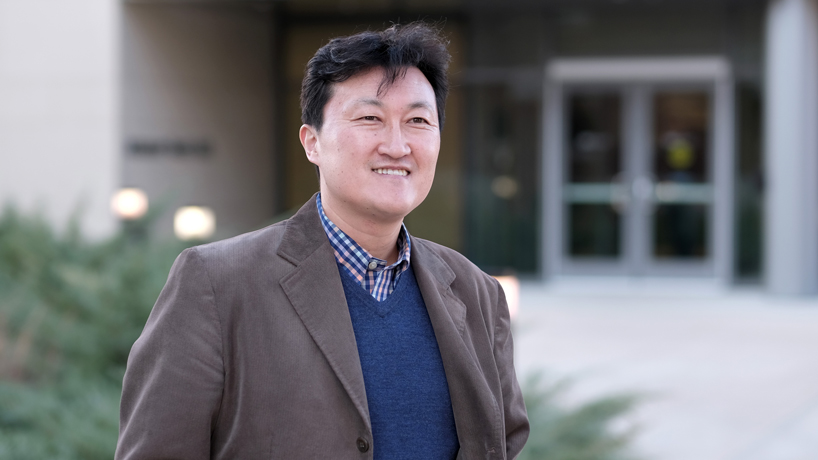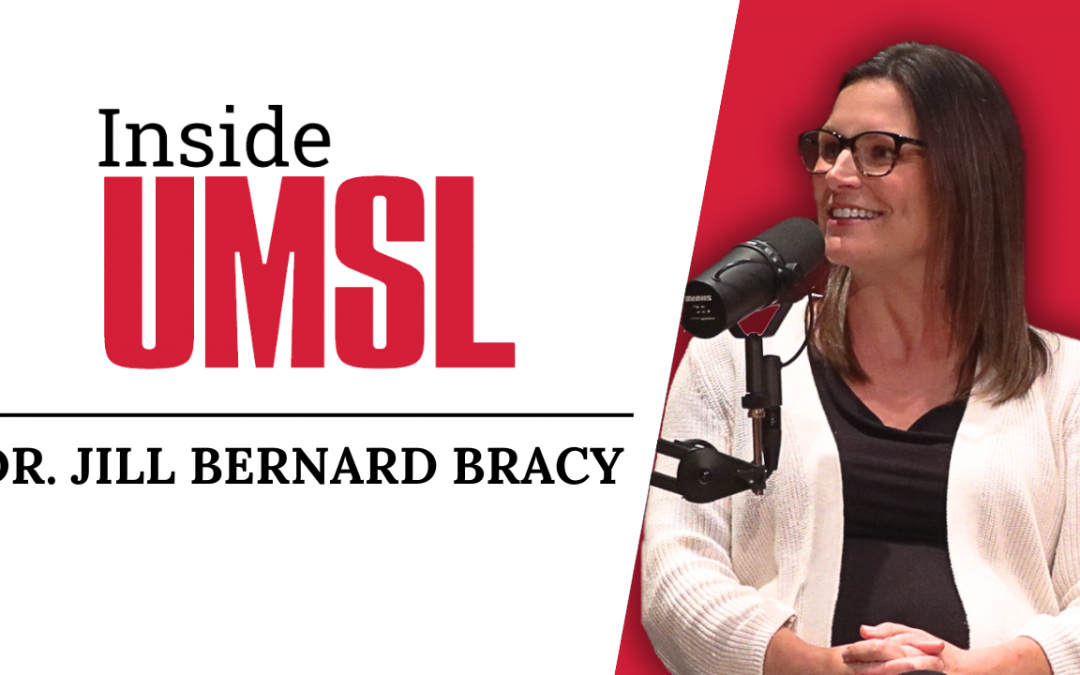
Ho Kim received the Douglas E. Durand Award for his research on digital and social media marketing. (Photo by August Jennewein)
Less than 1 percent of people who see a movie leave a review.
If moviegoers knew it was such a small number, would they rely as much on reviews when selecting a film?
That’s one of the issues Ho Kim, assistant professor of digital and social media marketing in the College of Business Administration at the University of Missouri–St. Louis, is grappling with in his latest research. It’s a question most people wouldn’t think to ask, but that kind of curiosity keeps Kim at the forefront of marketing research.
It’s also led to his selection as the 2019 Douglas E. Durand Award for Research Excellence recipient.
“It means a lot to me as a junior professor,” Kim said. “There are a lot of very strong researchers at the business school. I feel very honored and also humbled. I have been working very hard to produce managerially and academically relevant research. I generally enjoy my research, but I also experienced setbacks and frustrations. This award encourages me to keep up the good work and be a better version of me as a researcher.”
Kim’s research has been featured in a number of academic journals. Most prestigious is an article on deceptive marketing practices, which appeared in the Journal of Business Ethics, a Financial Times top 50 publication.
“Dr. Kim’s research is cutting-edge, and he has compiled an enviable record of numerous high-quality publications and contributions to knowledge in his field,” said Thomas Kozloski, associate professor of accounting and an award committee member. “This year’s Durand Award for Research Excellence selection process considered a number of very competitive nominations. That Dr. Kim was selected as this year’s winner is further evidence of his great research accomplishments.”
All about the numbers
At the heart of Kim’s career lies a fascination with data and what it reveals about customers’ interactions with brands.
“The internet has enabled us to measure what would have been very difficult,” Kim said. “You can now measure how consumers’ interest in a product changes over time; how consumers respond to firms’ advertising efforts; how consumers respond to different news events.”
He has been engrossed in digital marketing for years, beginning with a bachelor’s degree in business administration from Yonsei University in Seoul, South Korea, followed by a master’s in management engineering from Korea Advanced Institute of Science and Technology in Seoul and a PhD in management from UCLA.
He’s been a faculty member at UMSL for the past four years, teaching marketing analysis and strategies while also conducting research on digital marketing trends.
“I apply advanced statistical and econometric methods to answer interesting marketing questions,” he said, citing the Thomas Jefferson Library as his greatest resource for finding those answers.
Looking toward the future
Based on his years of research, Kim believes the next phase of marketing will feature a heavy reliance on artificial intelligence and machine learning.
Simply put, artificial intelligence involves technology that learns over time. Smart devices, such as Amazon Echo and Google Home, bring AI into everyday life.
“A lot of big companies have already embedded these things in their operations as the tools have been found to tremendously improve marketing effectiveness,” Kim said.
Machine learning, a type of artificial intelligence, lets computers use data to master new skills without the need for extra programming.
“Big companies use machine learning and predictive modeling to recommend to consumers the products that they are most likely to purchase, to find the best price point for different consumers at different points in time and to show different formats of webpages for different consumers,” Kim said. “I believe that more and more small firms will adopt these tools in their day-to-day operations in the future.”
The shift to AI and machine learning means more data, more questions and vast opportunities for research. Currently, Kim is comparing the effectiveness of advertising, online reviews and word-of-mouth recommendations when convincing customers to buy a product.
Ultimately, though, the future of marketing depends on the people who will one day enter the field.
“I would suggest that students talk with marketing people from many different fields to find the job that matches their interest,” he said. “Certainly digital marketing is one promising area.”














